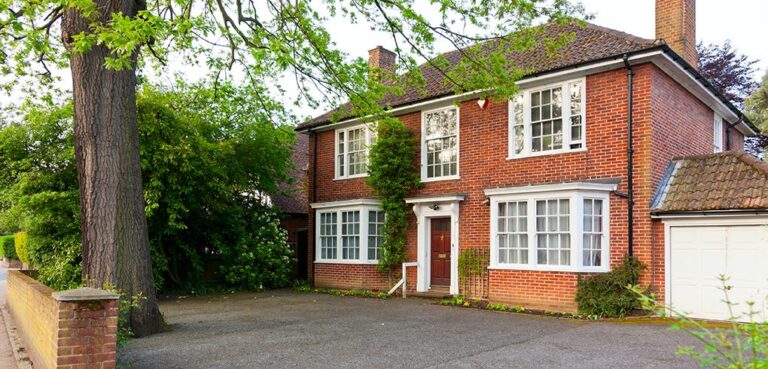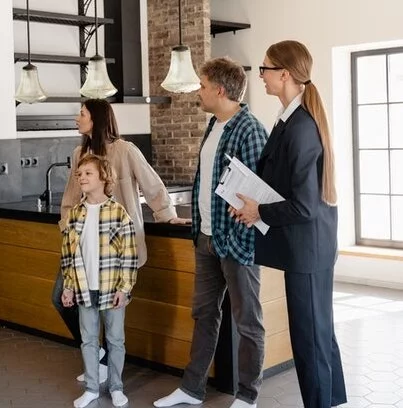
Getting a Help to Buy Remortgage
Want to remortgage a help to buy home? Here what you need to know about getting a help to buy remortgage and how to pay back the equity loan.
Speak to a remortgage adviser
Fill out this enquiry form and we’ll contact you to book a free call with one of our mortgage experts.
"*" indicates required fields
Have you received a letter saying your Help to Buy mortgage is about to end? If so, you might be wondering how to remortgage your Help to Buy home.
Buying your first home as a first time buyer can be both stressful and exciting, and facing the paperwork again can seem a little daunting. It doesn’t need to be though, and remortgaging a Help to Buy scheme is important if you want to avoid an increase in your monthly mortgage payments.
When you signed up to your Help to Buy mortgage, you would have agreed a cost to borrow the money you needed (interest rate) for a period of time (term). After this term ends, the cost of borrowing usually goes to a standard rate SVR (standard variable rate) – although it’s important to note that some products vary in their terms.
Unfortunately, this rate is sometimes a lot higher than your initial rate, which means your monthly costs might go up.
Contents
How to Remortgage Help to Buy
Firstly, it’s essential to gather all the information you have on your current mortgage – this should have been provided to you. It’s a good idea to contact a mortgage adviser to help you with your remortgage.
Your mortgage adviser will discuss your current financial situation and talk through your options. As with your original Help to Buy mortgage, you’ll need to make decisions about the type and length of the mortgage based on what you can afford to pay and your future aspirations.
The key difference between a Help to Buy remortgage and a standard one is the Government loan. It’s considered when calculating your remortgage, and you also have the option to repay it as part of your remortgage if this is affordable. Your adviser will be able to explain this in detail and answer your questions.
Not all lenders are open to Help to Buy remortgages, and if you haven’t repaid much of your mortgage yet, you might fall into a higher interest rate range – so it’s important to maximise your options by speaking to a mortgage broker. One of our advisers will be able to guide you towards lenders that are more likely to approve applications for borrowers with Help to Buy loans, saving you time and effort.
Help to Buy Government Loan Charges After 5 Years

With Help to Buy, you need to consider that the Government starts charging interest on the loan you borrowed for your deposit after 5 years – an increase from the £1 monthly management fee.
The Government issued all Help to Buy loans on the basis that no interest would be charged for the first 5 years, with only a nominal monthly management fee.
After 5 years, you pay interest on the loan. This is another reason why some people choose to pay back a Help to Buy loan via a remortgage.
From year 6 onwards, you’ll need to pay:
- Interest at 1.75% per year
- A £1 monthly management fee
The interest will rise each year in spring by the Retail Price Index (RPI) plus 1%.
Remortgage to Pay Off Help to Buy Loan
You can use a remortgage to pay off your Help to Buy loan, but as with any borrowing, it’ll depend on your financial situation.
Unlike a typical loan, your Help to Buy scheme is based on equity, meaning it represents a share in your home. So, you don’t pay back the amount you borrowed; instead, you repay a percentage of the current value of the property.
For example, if you borrowed 20% through the Help to Buy scheme:
- Your house originally cost £200,000
- Your house is now worth £210,000
- You’ll repay 20% of the current value, which is £42,000
- Your remaining mortgage would be £150,000
The above is based on an initial 5% deposit.
Help to Buy Remortgage Rates and Comparison Tips
When looking for the cheapest remortgage deal for your Help to Buy home, it’s essential to compare interest rates and the associated fees over time.
Your remortgage adviser will explain this in full. Here’s what to look for:
- Interest rate (cost of borrowing)
- Arrangement fee
- Booking fee
- Product fee
- Valuation fee
- Possible Solicitor fee
- Cashback
- SVR (standard variable rate) – the rate applied after your deal ends
- Monthly repayment amount
- Overall cost for comparison
- Exit fees and early repayment charges
- Flexibility to make overpayments or port the mortgage to a new property
For instance, if you find a deal with lower monthly payments but high upfront fees, it could be more expensive in the long term compared to a deal with slightly higher monthly payments and lower fees.
A remortgage adviser will also consider whether the lender’s criteria align with your needs. By selecting the best match and the most cost-effective deal overall, you’re more likely to secure approval and feel confident in your choice.
Help to Buy Scheme Remortgage with Bad Debt or Poor Credit
You might still be able to remortgage your Help to Buy home if you have bad debt or poor credit, but this will depend on the severity of the debt, how recent it is, and your overall credit history. Essentially, your credit report indicates how much of a risk you are to lenders. If you’re considered high risk, you may face higher interest rates and have access to fewer lenders.
It’s advisable to improve your credit score before applying for a remortgage. Your adviser can guide you on how to do this. Simple steps like setting up direct debits for minimum payments and ensuring you have sufficient funds in your account can help prevent negative marks on your credit history.
If you need more information on getting a remortgage with Help to Buy or would like to speak with an expert mortgage adviser, get in touch today on 023 8235 2300 or enquire online.
Get in touch with our experts
Book an appointment with an adviser today and we’ll help you work out which mortgage deal is best for you and your requirements.
Read More Remortgage Guides
See also
Can I Change My Residential Mortgage to Buy-to-Let?
Two Mortgages at the Same Time with Non-Simultaneous Sale and Completion
How to Consolidate Debt by Raising Funds
House Conversion to Flats
Can You Remortgage Early?
Can You Change a Buy-to-Let Mortgage to Residential?
Can You Get an Unlimited Overpayment Mortgage?
Can You Get Two Mortgages on One Property?

